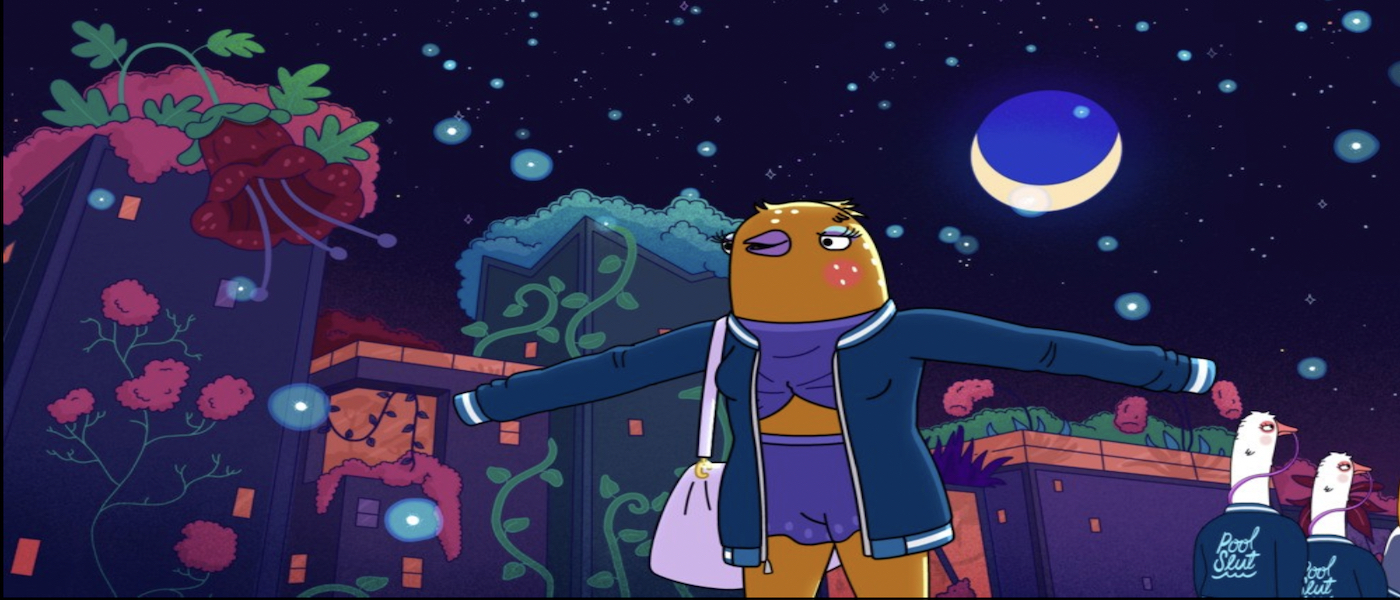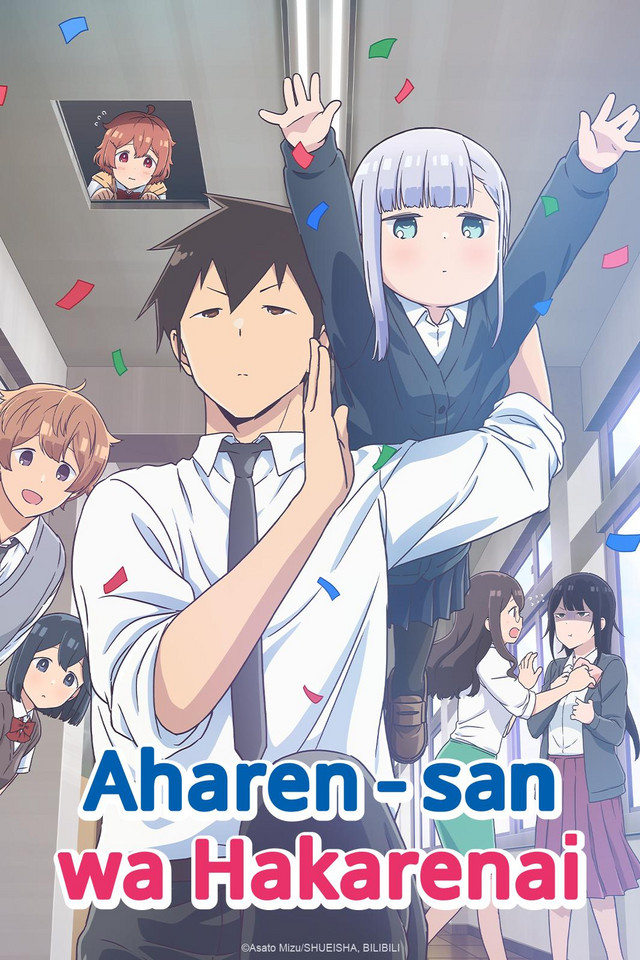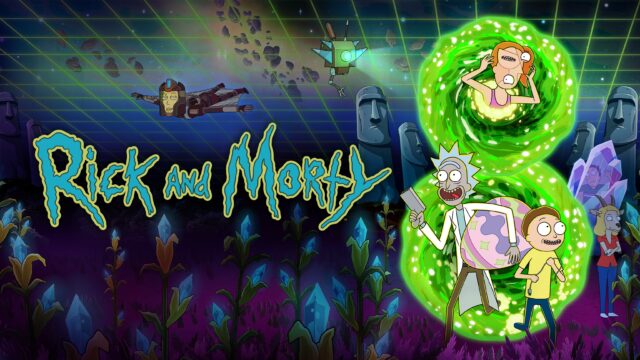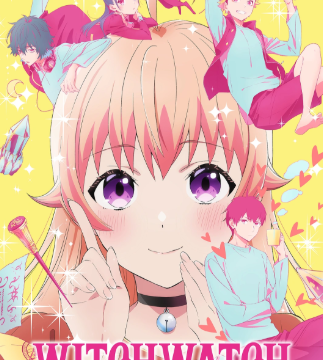Season Review: Tuca & Bertie Season Two (First Four Episodes)
Overview:
Tuca & Bertie is back and more self-assured and insecure than ever! The two 30-something birds continue to attempt to straighten out their lives and make sense of the world around them, as well as the cacophony of self-doubt that echoes through their heads. The headstrong Tuca and pragmatic Bertie gain the hang of “adulting” while they develop more as a unit, but also as independent individuals. The two birds make progress and feel more confident about themselves in several arenas, but they quickly learn that health and recovery can have a way of knocking loose even more insecurities. Tuca and Bertie are prepared to seize Bird Town by storm, but it’s themselves that they have to worry about the most.
Our Take:
There is no shortage of television shows that focus on the power of friendship, but the bond between Tuca and Bertie makes up the entire ethos of Tuca & Bertie. It’s no coincidence that the series’ title is literally just the names of these two ride-or-die birds. There are other important relationships in Tuca and Bertie’s lives, but this series argues that “best friends” is a bond that’s more intense, important, and validating than any romantic endeavor. This is a beautiful idea to consider and the show’s first season spends a lot of time on establishing the rhythm and nature of Tuca and Bertie’s dynamic. Season two puts their relationship under even greater scrutiny and considers how it’s a very precarious tightrope walk between codependency and progress. This season lives in that tension and unpacks the adage that “friends come first” to better understand if this is actually helpful advice or actions that are deceptively destructive for Tuca and Bertie.
Tuca & Bertie’s second season makes emotional growth its priority, which it examines from both the perspective of Tuca and Bertie as a team, as well as individuals. Each of these new episodes explore these characters’ compulsions and bad habits, but also how to bring about healthy change and not get trapped in a toxic cycle. This is territory that it took BoJack Horseman years to finally contemplate and so it’s very encouraging that Tuca & Bertie is already at this place. So much of these early episodes involve Tuca and Bertie’s attempts to entertain different forms of advice for self-improvement. However, a major theme of this season is that nobody really has the answers or knows what they’re doing, which becomes oddly empowering. Bertie might physically feel more vulnerable because of her panic attacks, but everyone is just as lost and frail.
One of the Tuca & Bertie’s biggest assets is its effortless ability to tap into 30-something malaise and the disaffected, paralyzing nature that can grab hold of people during this period of their lives. This perspective only becomes stronger in the series’ second season once these characters become more committed to directly face their anxiety and past trauma.
One of the biggest shifts that’s present in Tuca & Bertie’s new season is Bertie’s embrace of therapy, which feels like such a natural progression to the character and her mounting doubts. This therapy angle functions as a clever way to catch up new viewers, not that Tuca & Bertie is especially complicated, rather than some awkward network mandate to hold the audience’s hand. Not every episode is consumed by Bertie’s therapy, but its presence remains with the character in a healthy way. It’s the most attention that I’ve seen a non-therapy show give to therapy since The Sopranos, which opens its stories up to even more provoking ideas.
Alternatively, Tuca tangos with the fine art of repression and displacement as a way to cope with her stress, which allows these contrasting tactics to nicely juxtapose with each other. There are some especially strong occasions where Bertie and Tuca are on separate paths, yet cope with similar struggles, like how the process of finding the right therapist is not dissimilar to courting the proper romantic suitor. It remains impressive how Tuca & Bertie can successfully juggle storylines that operate on opposite emotional spectrums. Personal and intimate struggles mix with broad pop culture parodies, but these diverse sensibilities balance each other out, much like how Tuca and Bertie’s diversity bring out the best in one another.
There’s a surprisingly touching level of solemnity to Tuca’s storylines in these introductory episodes that all hit even harder due to her bombastic personality. Tuca’s sobriety, her strained relationship with her family, and the staggering feelings of loneliness that attack her at night emphasize a more tender side to the character. Tuca & Bertie has always been especially careful to not reduce any of its cast into caricatures, but everyone feels even more layered and with greater depth this season. Great strides are taken in this department with Steven Yeun’s Speckle, who becomes much more of an independent character that receives equal attention to both Tuca and Bertie. This duo morphs into more of a triptych, which makes sense as Bertie and Speckle’s relationship also gains more focus. All of this is helpful to fully understand Speckle on his own and not just as an extension of Bertie, and vice versa. For the first time it feels possible to picture a version of Tuca & Bertie where Speckle and Bertie could both be a part of the show, but as friends and not just romantic partners.
This season of Tuca & Bertie also doesn’t lose any of its prescience or its ability to intelligently dissect and comment upon power dynamics in the world. There’s a reexamination of “cancel culture” and abusive men, which is fundamental to season one, but now happens in a powerful way that doesn’t just retread old material. There are some genuinely challenging and controversial ideas that get brought up over the nature of how “progressive” it is to forgive abusers and that this actually shows more growth than the “easy” alternative to cancel someone. It’s a scarily prophetic perspective that BoJack was never able to shine a light on. Tuca & Bertie bravely broaches the topic of what society should do with these “exiled” individuals right when the real world struggles to answer the same questions as actors like Kevin Spacey begin to book new roles.
The third episode of this season, “Kyle,” has the most to say, but it also contains some of the clumsiest moments from this first batch of episodes. Some of these concepts don’t work as well as others, such as a manifestation of Bertie’s inner more confident self, which actually manifests into a physical being. The episode makes its point, but then gets a little too cyclical and literal than it needs to be. This feels slightly disingenuous or even toxic in an episode that’s otherwise delicate and attempts to unpack such relevant and important material. This dichotomy reaches its apex when a musical number about the pros of “bro life” kicks off while thought provoking questions about forgiveness and redemption get buried in the process.
Tuca & Bertie remains excellent when it comes to character development and storytelling, but it’s understandable to be concerned that the show’s move to Adult Swim from Netflix could result in a compromised version of what worked. Thankfully, Tuca & Bertie hasn’t lost any of its edge, heart, or weirdness after this network move. The series feels identical and if the budget has been slashed in any substantial way then it’s not obvious. Tuca & Bertie still indulges in wonton surrealness where characters will transform into anthropomorphized concepts, like they’re the Genie from Aladdin, to better illustrate their inner feelings. It’s one of the specific details about this show that gives it such a unique voice.
The same can be said for Tuca & Bertie’s tendency to bring such life to its environments and the unique filter that it places over everything. A bachelorette party in Planteau is filled with translucent, glowing visuals and diverse ecosystems that put in tremendous work to make these feel like fully-formed worlds. Sometimes simple elements like the clouds in the sky look so beautiful that it’s actually disappointing when scenes continue and move past such fleeting, elegant visuals. There’s one specific scene that’s cast against a lighthouse, which perpetually shines light across the setting in a magical way.
There are other strong stylistic flairs where a character’s joy or confidence will become so intense that they literally overpower the animation and influence the art style to grow more gorgeous. It’d be so easy for Tuca & Bertie to just fall back on old season one assets, but it’s encouraging to see the show try to traverse so much fresh material. It paints a very encouraging picture for the show’s future and that this amazing world will only grow bigger and more exciting. Season one also ambitiously uses different mediums to represent characters’ traumatic memories and flashbacks. Admittedly, this same unpredictable flair for creation is absent from these first four episodes, but hopefully visual masterpieces, like the flashback from “The Jelly Lakes,” are being saved for the season’s second-half.
Adult Swim is currently in a curious position of flux, with not only a shift in regime at the network, but new corporate overlords also getting involved, as well as a number of classic Adult Swim series meeting their ends. It’s a definite period of transition and there’s been a slight shift towards more female-friendly programming, such as Birdgirl and Three Busy Debras, which ideally will bring a more diverse slate of series to Adult Swim. Tuca & Bertie is a major acquisition for the network that says a lot about where their current priorities lie. It’s a smart choice since the show represents tenets of Adult Swim’s past, while it also blazes the trail for the future. Tuca & Bertie is already a strangely excellent companion piece for Adult Swim’s YOLO: Crystal Fantasy.
Tuca & Bertie’s second season grows more confident and it’s not afraid to tell bigger, fuller, and more responsible stories that are interested in challenging its characters and pushing them to make difficult decisions. This season doesn’t just coast on the series’ sillier and broader impulses. They’re impressive episodes, but they instill even more faith in how this show will continue to evolve in a third and fourth season. This is what’s most exciting about the series’ return and it’s the best vote of confidence for Tuca & Bertie and its longevity in the future. This isn’t some last-minute renewal from Adult Swim where they temporarily reheat Netflix’s leftovers, only to eventually forget about them. Adult Swim is ready to turn Tuca & Bertie into a lavish four-course meal which can sustain its demographic for years.
























"There are also other characters that come and go (also owned by the Warner Bros. Discovery conglomerate media company)."
Huh. Is that just referring to other characters from the show itself, or is this implying that the new season is going to have cameos from other WBD IPs